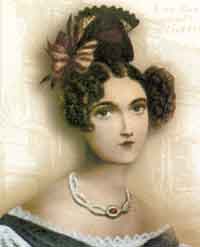Government
Guyomar, "The Partisan of Political Equality between Individuals" (April 1793)
Pierre Guyomar wrote the pamphlet excerpted here during the war–torn and hungry spring of 1793, at the height of popular political mobilization that restated arguments made by Condorcet three years earlier.
Discussion of Citizenship under the Proposed New Constitution (29 April 1793)
In the discussion of a new constitution in April 1793, Jean–Denis Lanjuinais spoke for the constitutional committee. He admitted that the question of women’s rights had aroused controversy.
Prudhomme, "On the Influence of the Revolution on Women" (12 February 1791)
Louis–Marie Prudhomme founded the Révolutions of Paris, one of the best–known radical newspapers of the French Revolution. In this editorial, he responds to women’s criticisms of the Revolution and outlines a theory of women’s "natural" domesticity.
Account of a Session of the Society of Revolutionary Republican Women
Unfortunately the only first-hand account of the meetings of the women’s club comes from notes taken by Pierre–Joseph–Alexis Roussel, published in a volume of memoirs in 1802. His account makes fun of the women’s club for discussing the virtues of women as warriors and administrators.
Regulations of the Society of Revolutionary Republican Women (9 July 1793)
The regulations demonstrate that women wanted to be taken seriously as political participants; they wanted their club to be like the clubs set up by men.
Police Reports on Disturbances over Food Supplies (February 1793)
The reports of the Paris police provide firsthand information about conditions in the city and about the leading role of women in food disturbances.
A Deputation of Women Citizens Demands Action on Food Prices (24 February 1793)
In the rioting over prices of February 1793, women appealed first to the authorities, showing that they intended to communicate directly with their representatives in the municipal government of Paris.
Women’s Participation in Riots over the Price of Sugar, February 1792
This fragment from a memoir by Charles Alexandre shows the anger of women when confronted by a sugar shortage. They readily attributed the shortage to hoarding by greedy merchants. This document also shows the new importance of colonial products such as sugar and coffee.

Camila O'Gorman
The story of Camila O'Gorman (1828-1848), the daughter of a prominent merchant in the Buenos Aires community, is one of the most famous cases of a young person challenging both parental and state authority.
Childhood Obesity in the United States
The map, issued by the Center for Disease Control (CDC), shows the percentages of substantially overweight, or obese, low-income children by county and in territories and tribal organizations where Native Americans live. The problem extends to both urban and rural populations.